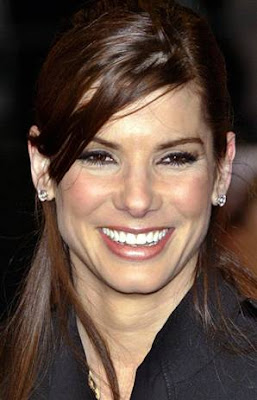Genre: Drama
Premise: A young boy goes on a journey through New York City to find the truth about how his father, who disappeared in 9/11, died.
About: Based on the book by Jonathan Safran Foer, Extremely Loud and Incredibly Close was adapted by Eric Roth, who won the Oscar for Best Adapted Screenplay for Forrest Gump
in 1994. He also co-wrote the screenplays for The Insider
(1999), Munich
(2005), and The Curious Case of Benjamin Button
(2008), all of which were nominated for Oscars. Roth was born in New York to a studio executive and a film producer. He got his masters from UCLA Film School. In a side note about Roth, he is one of the unfortunate group of investors in the Madoff Ponzi scheme, and has admitted to losing all of his retirement money in the scam. Tom Hanks and Sandra Bullock star in “Extremely Loud.” 12 year old Thomas Horn, who won Jeopardy Kids Week in 2010, will be playing Oskar.
Writer: Eric Roth (based on the novel by Jonathan Safran Foer)
Details: 137 pages – March 17, 2010 draft (This is an early draft of the script. The situations, characters, and plot may change significantly by the time the film is released. This is not a definitive statement about the project, but rather an analysis of this unique draft as it pertains to the craft of screenwriting).
Eric Roth is very much an anomaly in screenwriting circles. He more or less does things his own way and doesn’t subscribe to fancy-schmancy screenwriting theory. He simply sits down and writes what comes to mind. Once asked what a writer should do if they hit writer’s block, Roth unassumingly offered, “Change the weather in the scene. That’s what I do.”
Not exactly shocking. Roth’s adaptation of Forrest Gump bucks numerous screenwriting trends, and you’d be hard pressed to find much structure in Benjamin Button. This makes him a hero to some and a hack to others. The “do it yourselfers” love that they can point to a successful screenwriter who ignores convention. The “structuralists” argue that that’s the reason why his stories are all over the place.
I’ll never forget listening to an interview with Roth where he was asked why we hadn’t seen any spec screenplays from him. Roth was genuinely confused by the term. “Spec?” The interviewer actually had to explain what a spec screenplay was to Roth. He had no idea. After being told what it was, he explained that he had been paid to write a script right out of UCLA and has been working ever since. Eric Roth has never worked on an idea of his own. Make of that what you will.
Oskar Schell is a 10 year old boy who wishes his anus could talk. In other words, Oskar’s weird. He’s the kid who gets picked on at school, the guy snorting up jello through a straw. He’s a loner through and through.
Oskar’s best friend was actually his father. “Was” because his father was one of those unfortunate souls who died in the twin towers on 9/11. Now Oskar, his mother, and his grandmother (who lives in the adjacent building and who Oskar communicates with via walkie-talkie) are taking it one day at time, trying to make sense of how and why this happened.
Oskar, in particular, is devastated by his father’s absence, to the point where he combs international websites with videos of people jumping out of the towers, hoping he can break through the blurry pixelated dots to locate his father. Oskar needs to know how his father died that day so he can stop inventing his death. He needs closure.
One day, Oskar finds an old vase in his mother’s closet and accidentally breaks it, only to find a key inside accompanied by a letter to someone named “Black.” Believing that this key will open something that sheds light on that fateful day, Oskar plans to visit all 500 Blacks in New York City, to find out which one this envelope belongs to. If he can get a couple visits in every week, it should only take a few years.
During this time, Oskar meets his grandmother’s mystery tenant, an old man who can no longer speak. Oskar’s put off by his weirdness, but it’s not like he’s breaking any Facebook friend records, so he asks him to join him on his journey, and “The Renter” (as we come to know him) accepts the invitation.
In the meantime, Oskar has to come up with clever ways to escape his house without his mom finding out that he’s running around New York. The relationship between the two is strained at best. They always got along, but the death of Oskar’s father exposed that the link between them was bridged by him, and that without that bridge, they have nothing to talk about.
Oskar meets tons of characters along the way, including a guard who works at the Statue Of Liberty and lets him come up and look out at the city. But most of his search is met with shrugged shoulders and apologetic smiles. Despite Oskar looking for some grand answer to it all, he may have to accept that the answer may never come.
It’s rare that I just get to talk about how a script affected me b/c it’s rare that a writer is so good that they can make me forget I’m reading a story. But this script did it. In a lot of ways it reminded me of when I read The Social Network, where I just forgot about form and structure and character and got transported into another universe via Roth’s wizardry.
Roth has a strange way of writing that I can’t quite put my finger on, but it’s its singular and unique and when you’re reading him, you go with it. Maybe it’s because he ignores convention. I don’t know. But there’s some really heavy stuff here that Roth has to sell and you never once question it.
Now make no mistake, there are some key things in place to make this story work. First and foremost is the character goal driving the action. Oskar is trying to find out what this key opens, and the connection he has with his father, shown through flashbacks and voice over, makes that goal extremely strong. I mean, I don’t know if I’ve felt this much love between two characters in a screenplay before.
Also, Oskar is the ultimate underdog. He’s a 10 year old kid with no friends who lost the most important person in his life. I mean who’s not going to root for this guy? (Note that Roth’s other most popular character, Forrest Gump, was also one of the biggest underdogs in cinema history).
But it’s the details and the crushing scenes in this screenplay that will leave you thinking about “Extremely Loud” long after you’ve finished it. (Spoilers) First and foremost the final answering machine message scene. I mean, I can’t remember the last time I felt so devastated reading something. The explanation of what happened on that last call? Grab your Kleenex girls AND boys, as you’re going to need it.
And rewinding his father’s “possible” jump from the towers so that he’s going back up into the building instead of falling down? I mean wow. I needed to wipe away some man-tears after that one.
On a lighter note, one of the nice touches here is being able to see what Oskar imagines. The trailer on this movie is going to be phenomenal. We’re going to have helicopters carrying the world’s biggest blanket, dropping it on the twin towers. We’re going to have thousands of coffins with rockets attached to them shooting up into the sky. We’re going to have a half-man/half-robot waiting to talk to Oskar. We’re going to have the “Sixth Borough” out on its own island next to Manhattan. The imagination in this story is incredible, and you really feel like you’re being taken into another world with every page.
This is easily the best thing about 9/11 that I’ve ever read. Probably the best decision Roth (or Foer) made was installing as much humor as there is here – and there’s a lot. Cause the truth is, people are tired of how emotionally draining 9/11 is. They see it and they just want to escape. But Oskar’s view of the world is so funny that this devastating tale is bearable – even enjoyable. And somehow – I’m still not sure how Roth does it – it never feels false. Everyone says “Don’t do voice over. Don’t do voice over.” But man, for writers who know what they’re doing, it can be the most powerful part of a screenplay – as some of Oskar’s musings in this story are.
So was it perfect? No, and I think that’s because this is an early draft. This is 137 pages long and it feels like it. I think Roth gets a little carried away with giving us the father’s backstory. I mean, there are some great moments in there. There’s just too much of it. I liked how we’d get a flashback scene with them every 20 pages or so to remind us what Oskar was fighting for. But right now there are like 20 scenes with the dad, and I think that can easily be cut in half. For this reason, the middle act drags until The Renter shows up.
Also, the mom storyline needs to be fleshed out and better defined. We know these two don’t get along, but we’re not exactly sure why. So their eventual reconciliation doesn’t have nearly the punch that it should have.
There were a few other things that bothered me. Roth can get a little long-winded at times. But the key here is that this script made me feel something. It’s hard to finish this screenplay and not feel affected in some way. Reading through so many average scripts, I sometimes forget how hard that is to do. Someone else told me that this script makes Extremely Loud a front-runner for an Oscar in 2012. I don’t know if I’d go that far but it certainly has the seeds to grow into something great.
[ ] What the hell did I just read?
[ ] wasn’t for me
[xx] worth the read
[ ] impressive
[ ] genius
What I learned: When comparing three of Roth’s most high-profile scripts, something sticks out. The combination of a heavy underdog and a voice over is a powerful one if you have the skills to pull it off. The underdog thing is obvious. Everyone roots for an underdog. But the additional voice over takes that connection between us to a new level. Because the main character is talking to us, we feel like we know him, and you’re always more likely to root for people you know. This approach was used to perfection in both this script and Forrest Gump. Contrast that with Benjamin Button, which was a good but not great film. It had neither. Benjamin was sort of an underdog, but not really, as he basically grew into a handsome young man. Also (if my memory serves me correctly) it was Cate Blanchett who did the voice over, not our hero. Are these the reasons Button is not as memorable as these two stories? I don’t know. But it’s certainly worth noting.





